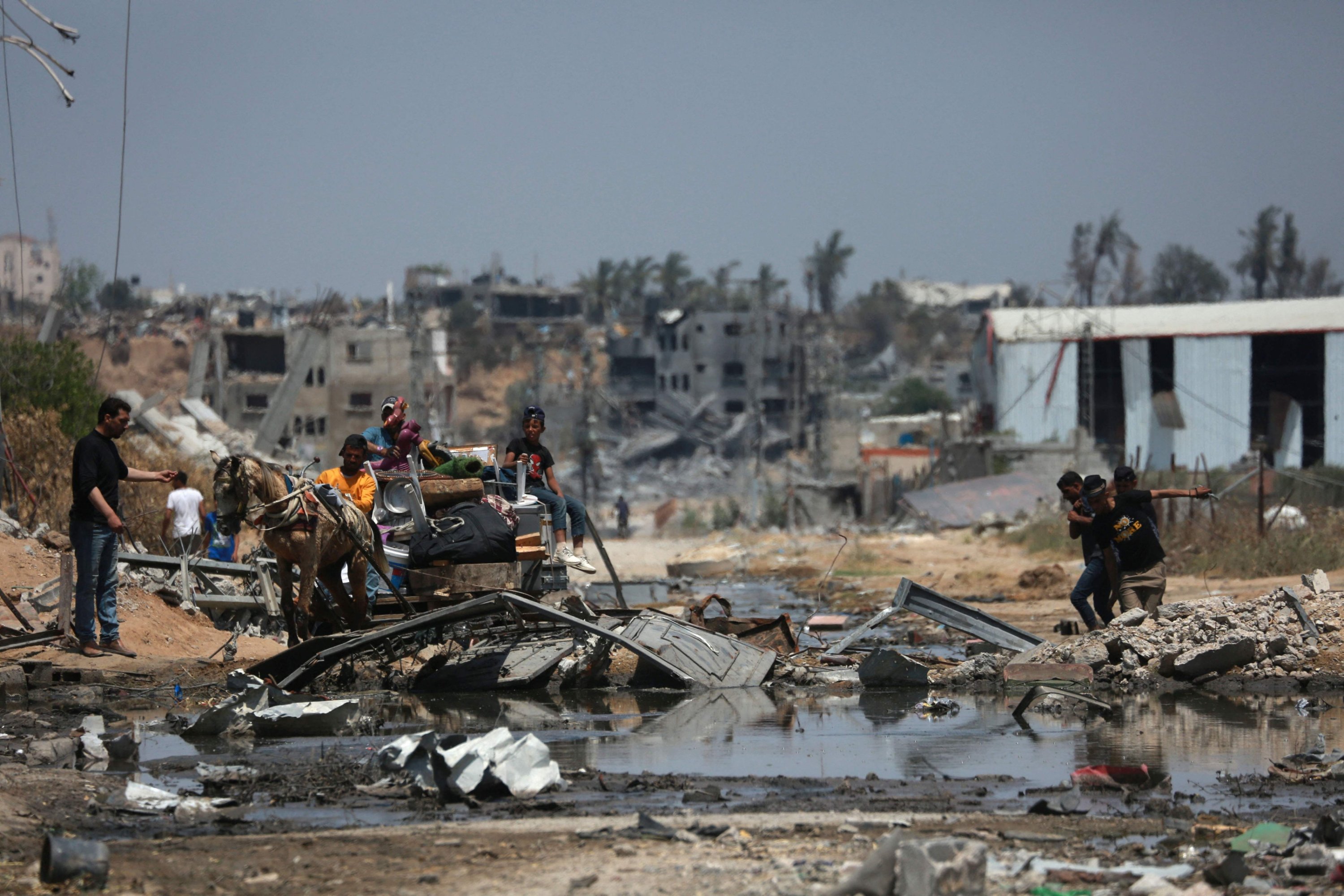The increase in exclusive self-interest gives way to the absence of a social consciousness within individual countries, which can explain the lack of serious empathy for the plight of the Palestinian people by the Arab world. If they don't care for their own, how can we expect them to care for foreigners?
"Palestinians ride an animal-pulled cart in Nuseirat amid Israel's ongoing genocidal attacks, in the central Gaza Strip, Palestine, April 29, 2024. (AFP Photo)"
About the author
"Arab governments and peoples are currently hesitant to act against Israel due to social weakness, economic vulnerability and political dependency"
"It is surprising to see that the Arab governments and citizens did not react effectively to the latest developments in the Gaza Strip. Although observers have been expecting a more effective reaction from Arab governments and citizens, they have largely remained indifferent to the ongoing genocide against the Palestinian people, living not only in the Gaza Strip but also in the West Bank. The streets of Arab states are unexpectedly very quiet compared with the streets of many non-Arab and non-Muslim countries.
There are several main reasons for this inaction. The first important factor is the change in the identity of the Arab people. Traditionally, Arab people used to enjoy four complementary as well as competing political identities. From the narrowest to the most comprehensive ones, they were baladiyyah (local or sub-national identity), wataniyyah (national, state-level identity), qawmiyyah (large-scale ethnic or pan-Arabic identity), and diniyyah (religious or Islamic identity). Although their relevance changed from time to time, they were all relevant for almost all Arab societies. Pan-Arabic and Islamic identities were more dominant politically. Most Arabs were interested in Arab and Islamic issues. The Palestinian cause, both an Arab and an Islamic issue, was at the heart of these two identities.
Society unorganized
The second most important factor was the suppression of organized Arab civil institutions. The most effective movements and socio-political actors during the Arab uprisings and revolutions were mainstream Islamic organizations. The Muslim Brotherhood, which was the largest organized and Islamic-oriented civil society institution in the Arab world, was one of the main carriers of revolutions and democratic change in the region. It came to power in several Arab states after free democratic elections. However, although it negates the use of violence, the Muslim Brotherhood, together with Hamas, was declared a terrorist organization by the Egyptian regime and several other Arab states in 2014. Today, there is no strong organized society in the Arab world to react to the Israeli atrocities against Muslim Arab people.
Furthermore, it is clear to everybody that any protest against Israel’s genocidal operations will be severely punished by the respective governments. The governments are determined to crush any societal demand. Therefore, governments are able to deter the Arab streets from reacting to any external development. In addition, Arab states are happy for the destruction of Hamas, a Palestinian/Arab Islamic-oriented resistance movement.
Economic aspect
Third, many Arabs, whose first and foremost priorities are their economic gains, do not want to abandon their comfort and wealth. They do not want their businesses to get harmed by the Zionists and their supporters. Most Arab elite do business in the Western states. Arab elites are largely dependent on international business circles, which are largely dominated by Western circles. They do not intend to do something that will harm their business and comfort. Therefore, the only contribution they make is humanitarian assistance, which does not reach the needy Palestinian people.
Western impact
Fourth, Arab governments are threatened by Western states. The pro-Israeli global powers have been threatening pro-Palestinian governments and actors. Supporters of the Zionist regime have been intimidating every actor worldwide for their support of Palestine and deterring them from taking anti-Israeli positions. In other words, because of this dependence, no Arab government dares to raise its voice against Israel and its supporters. Similar to their respective societal actors, they also follow a cost-free policy toward the latest developments in Gaza. While they provide humanitarian support to the Palestinians, they are careful not to take any concrete action against the Israeli state.
All in all, Arab governments and peoples are reluctant to take concrete action against the Zionist state and its supporters. They are too weak socially, vulnerable economically and dependent politically to take effective measures against the Israeli atrocities. However, this silence may not last forever, the energy accumulated on the fault line could lead to an explosion one day."
This blog is not monetized, it is strictly produced as a public service.

No comments:
Post a Comment